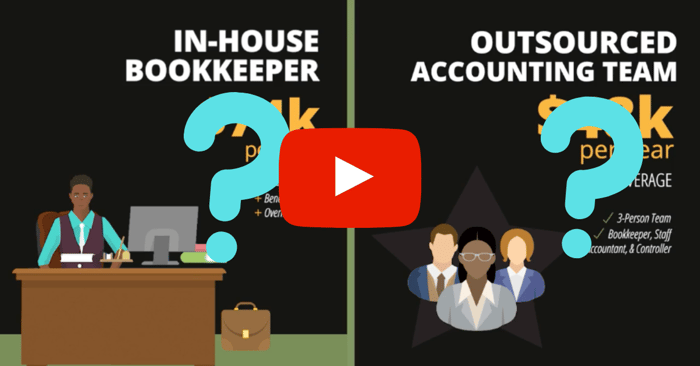8 min read

It's no surprise that employee turnover is expensive.
|
Key Takeaways
|
To start, there are upfront costs associated with replacing an employee who leaves, such as the cost of advertising the position, interviewing, and hiring. There are also hidden costs that occur with a lag in productivity throughout the hiring process and while a new hire gets up to speed.
Additionally, turnover can lead to diminished employee engagement, morale, and general productivity that can occur as a result of the vacancy. Plus, you should also account for the lost time, money, and training that has been invested in the employee during their time working for you. Don't forget the knowledge of experience and customer relationships that walk out the door with them.
According to research from Gallop, U.S. businesses were losing $1 trillion (yes, with nine zeros) to voluntary employee turnover annually – and, here's the shocker: those numbers were from 2019, as in pre-pandemic before the start of the Great Resignation [1] when turnover rates were average compared to now. For some perspective, in 2019, the U.S. Bureau of Labor and Statistics reported the annual overall turnover rate at 26.9%. [2] In 2021, the turnover rate rose to 57.3%. [3]
Collectively, the cost of turnover is staggering, but what does turnover mean for your business? How much does turnover cost you? Conservatively, the cost of turnover ranges from 50% to 200% of the lost employee's salary or pay rate, depending on the level of the employee in your organization. The higher up the employee, the more costly their separation is for your business.
With the high cost of employee turnover, 48% of employees who are actively job searching, [4] and employees choosing to leave their jobs in ever-increasing numbers, taking action to prevent employee turnover is more important now than it has ever been before.
To determine what steps you can take in your company to increase employee retention and put a stop to unnecessary turnover, first take a look at the reasons why employees quit their jobs. Then, make sure your workplace and management style never gives a good employee a better reason to walk away.
12 Reasons Why Employees Quit Their Jobs
1. Being Overworked and Burning Out
Overworking your employees can and will lead to burnout. A 2017 study from Kronos found that 95% of HR employees interviewed reported that employee burnout had a negative effect on their turnover rates. [5]When you have talented people working for you, it can be tempting to push more responsibilities toward them. To employees, however, this feels less like recognition of their good work and more like punishment for doing good work.
Never increase an employee's workload or scope of responsibilities without also rewarding them with increased pay, job status, or title changes that reflect the increase in their responsibilities. Regardless of monetary rewards and recognition, never overburden your employees. No amount of pay or position in your org chart can prevent employee burnout.
2. Lack of Opportunities for Career Advancement
A 2021 survey from Pew Research Center found that 63% of employees quit their jobs because they lacked opportunities for career advancement, 33% citing it as a major reason for leaving. [6]
In order for employees to have a sense of purpose and feel fulfilled in their careers, they need to feel like they are working toward something. Providing opportunities for continuing education, training, professional development, and advancement can provide them with this sense of purpose in the workplace.
Read More: 5 Reasons Why Promoting Employees From Within Is Better For Your Business
3. Not Feeling Appreciated
Failing to recognize your employees' efforts and accomplishments can make them feel unappreciated, and that's not good for your turnover rates. In a study from Office Team, 66% of workers said they would leave their current jobs if they did not feel appreciated. [7] Employee recognition can come in the form of a mention during a team meeting, monetary compensation, extra time off, or a promotion. Sometimes, all employee recognition takes is simply thanking your employee individually for a job well done.
4. No Clear Direction or Goals (or Changing Direction Too Frequently)
Employees need to have a clear objective, know what is expected of them, and also have an understanding of how their roles and responsibilities connect to the business's larger, long-term goals – and, although it is sometimes necessary to pivot, try not to change direction too frequently, as this can lead to frustration, feelings of futility in the workplace, and overall employee dissatisfaction.
5. Lack of Engagement
Employee engagement is not only strongly related to employee productivity (with productivity increases as employee engagement does), but it is also linked to employee turnover. A Gallup study that surveyed 34 million workers around the world found that highly engaged employees were 59% less likely to look for new careers or jobs in the next year compared to their less engaged counterparts. [13]
6. Low Pay
The same survey from Pew Research Center also reported 63% of employees citing low pay as a reason for quitting their job, with 37% saying it was a major reason they quit. While this reason why workers leave their jobs might seem obvious, you don't want to lose a valuable employee for this reason – especially, if their ROI is high and you could afford to pay them more. Get ahead of this issue by offering raises that are realistically in line with your employees' level of work in addition to inflation and cost of living adjustments.
7. Inflexible Office Models
More than 50% of employees now desire to work more flexibly, meaning they want both flexible office hours and remote work opportunities. [9] Additionally, 70% of millennials have thought about leaving their jobs in pursuit of more flexible, hybrid office work opportunities. [10] If the pandemic has not yet forced your workplace into an at least hybrid, more flexible office model, then it's time to adjust to what the workforce clearly wants and start providing your employees with opportunities for more flexible work that offers a better work-life balance.
Read More: Are Employees More Productive at Home?
8. Broken Promises
If a manager says they'll do something, then it's important that they follow through. When you break commitments, especially those you've made to your employees, you come across as uncaring and unreliable while losing their trust and respect. Keeping your promises simply makes you, as a boss, more likable, trustworthy, and reliable. In other words, it makes you the kind of boss that people want to continue working for.
9. Bad Bosses
According to a Gallup study of one million workers, 75% of employees quit their jobs because of bad bosses, not because of the job itself. That makes poor management the number one reason employees choose to quit [11].
Gallup research has also shown that bad management is directly responsible for 70% of the negative differences in employee engagement scores across organizations [12], and employee engagement is directly tied to employee productivity and the number 12 reason on this list why employees quit their jobs.
Read More: Invest In Your Middle Managers: They Can Make or Break Your Business
10. Poor Relationships With Coworkers
Research from Gallup has repeatedly shown a strong correlation between strong, positive connections between coworkers and higher employee satisfaction [13]. When your employees have friends at work, it increases their happiness in the workplace and greatly reduces the likelihood that they'll quit. If you see interpersonal trouble brewing among your employees, take the time to step in and help resolve the conflict before it has a negative impact on your employee retention rate.
11. Micromanagement
Micromanaging employees might be useful at certain times, such as during training. Most of the time, micromanagement is detrimental to business operations, employee happiness, and growth potential. Micromanagement has been shown to cause high turnover in addition to low morale, dissatisfaction, and decreased productivity. [14]
12. Toxic Corporate Culture
A survey from the recruiting firm, Hayes, found that of the 2,000 job seekers interviewed nearly half cited corporate culture as one of the primary reasons they were looking for a new job. Having a bad or – worse – toxic corporate culture is a surefire way to experience sky-high employee turnover rates. Poor corporate cultures are those that tend to foster interpersonal problems between employees, cutthroat competition, and dissatisfaction in addition to a lack of camaraderie, free-flowing communication, psychological safety, and the recognition of positive accomplishments.
Everything that goes along with a bad corporate culture makes employees feel unhappy while they are at work. This unhappiness can then spread to their time outside of the office, diminishing their overall quality of life. Unhappy workers don't stay at their jobs.
Read More: Culture Budget: How To Properly Invest In Your Employees
Can You Measure Employee Satisfaction With Your Back Office?
Your back office certainly is not an employee mood ring. However, it can provide you with some very valuable insights into employee satisfaction and engagement and how those numbers relate to increased retention rates and improved productivity.
With a back-office that's streamlined and automated to record data and track key metrics related to your people, you can start implementing changes that have a positive effect on employee satisfaction and watch how your bottom line improves, along with the happiness of your people.
[1] https://www.gallup.com/workplace/247391/fixable-problem-costs-businesses-trillion.aspx
[2] https://www.bls.gov/news.release/archives/jolts_03152019.pdf
[3] https://www.bls.gov/news.release/pdf/jolts.pdf
[4] https://www.gallup.com/workplace/351545/great-resignation-really-great-discontent.aspx
[5] https://www.kronos.com/resource/download/23811
[8] https://www.gallup.com/workplace/236483/enhances-benefits-employee-engagement.aspx
[11] https://www.linkedin.com/pulse/employees-dont-leave-companies-managers-brigette-hyacinth/
[12] https://www.gallup.com/workplace/232955/no-employee-benefit-no-one-talking.aspx
[13] https://www.gallup.com/workplace/236213/why-need-best-friends-work.aspx

.png?width=563&height=144&name=New%20GF%20Logo%20(37).png)


